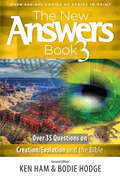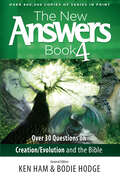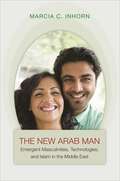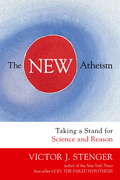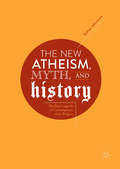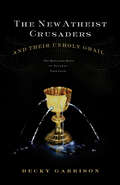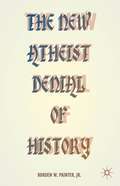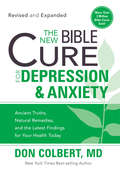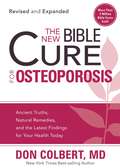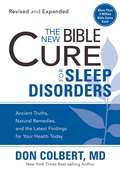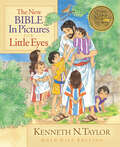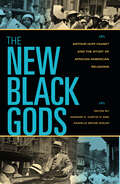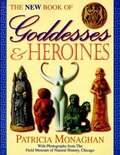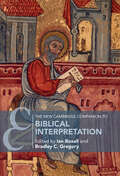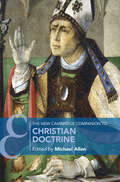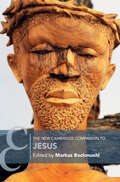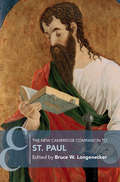- Table View
- List View
The New Answers Book Volume 3: Over 35 Questions on Creation/Evolution and the Bible (New Answers Books #3)
by Ken HamThe world around us provides irrefutable evidence of our Creator, but when challenged, can you defend your faith? Do you have answers to your own questions or those of your family about faith, evolution, creation, and a biblical worldview? Get the important information you need in this compelling third book from the popular Answers series, and learn more about: Global warming Cloning and stem cells The existence of God Bacteria and viruses Questions for evolutionists Human and chimp DNA The universe - young or old? "Kinds" in Genesis What Noah's Ark looked like...and much more. Learn how to be more effective in defense of scriptural authority and the truth of Genesis as literal history. Join Ken Ham and leading creation scientists like Dr. Jason Lisle, Dr. Andrew Snelling, Dr. Georgia Purdom, Dr. David Menton, Dr. Terry Mortenson, Dr. John Morris, Dr. Steve Austin, Dr. David DeWitt, Dr. Danny Faulkner, Dr. Joe Francis, and others as they provide simple and empowering answers to these and other popular questions of faith in our culture today. Other exciting books available in this best-selling series: The New Answers Book 1, and The New Answers Book 2, with over 50 additional questions and answers.
The New Answers Book Volume 4: Over 30 Questions on Creation/Evolution and the Bible (New Answers Books #4)
by Ken HamWhat about climate change? Is there a connection between dragon legends and dinosaurs? Is evolution the bloodiest religion ever? What about cavemen? What are the 10 best evidences for a young creation? The Answers series has been a powerful tool in equipping believers to share and defend their faith. Now the newest book in this landmark series takes on hot button topics like climate change, ancient man, and many more. Too many people have walked away from their faith because they sought answers for what seemed a contradiction in Christian belief and scientific teaching. For those who desire a deeper walk and a thriving faith in the face of a growing cultural adversity, now find the answers to questions you have or others may use to genetic engineering, this powerful team of apologists is able to inspire you and those you know who may not yet believe.
The New Arab Man: Emergent Masculinities, Technologies, and Islam in the Middle East
by Marcia C. InhornMiddle Eastern Muslim men have been widely vilified as terrorists, religious zealots, and brutal oppressors of women. The New Arab Man challenges these stereotypes with the stories of ordinary Middle Eastern men as they struggle to overcome infertility and childlessness through assisted reproduction. Drawing on two decades of ethnographic research across the Middle East with hundreds of men from a variety of social and religious backgrounds, Marcia Inhorn shows how the new Arab man is self-consciously rethinking the patriarchal masculinity of his forefathers and unseating received wisdoms. This is especially true in childless Middle Eastern marriages where, contrary to popular belief, infertility is more common among men than women. Inhorn captures the marital, moral, and material commitments of couples undergoing assisted reproduction, revealing how new technologies are transforming their lives and religious sensibilities. And she looks at the changing manhood of husbands who undertake transnational "egg quests"--set against the backdrop of war and economic uncertainty--out of devotion to the infertile wives they love. Trenchant and emotionally gripping, The New Arab Man traces the emergence of new masculinities in the Middle East in the era of biotechnology.
The New Atheism
by Victor J. StengerIn recent years a number of bestselling books have forcefully argued that belief in God can no longer be defended on rational or empirical grounds, and that the scientific worldview has rendered obsolete the traditional beliefs held by Christianity, Judaism, and Islam. The authors of these books--Richard Dawkins, Daniel Dennett, Sam Harris, Christopher Hitchens, and Victor J. Stenger--have come to be known as the "New Atheists." Predictably, their works have been controversial and attracted a good deal of critical reaction. In this new book, Victor J. Stenger, whose God: The Failed Hypothesis was on the New York Times bestseller list in 2007, reviews and expands upon the principles of New Atheism and answers many of its critics. He demonstrates in detail that naturalism--the view that all of reality is reducible to matter and nothing else--is sufficient to explain everything we observe in the universe, from the most distant galaxies to the inner workings of the brain that result in the phenomenon of mind. Stenger disputes the claim of many critics that the question of whether God exists is beyond the ken of science. On the contrary, he argues that absence of evidence for God is, indeed, evidence of absence when the evidence should be there and is not. Turning from scientific to historical evidence, Stenger then points out the many examples of evil perpetrated in the name of religion. He also notes that the Bible, which is still taken to be divine revelation by millions, fails as a basis for morality and is unable to account for the problem of unnecessary suffering throughout the world. Finally, he discusses the teachings of ancient nontheist sages such as Buddha, Lao Tzu, and Confucius, whose guidelines for coping with the problems of life and death did not depend upon a supernatural metaphysics. Stenger argues that this "way of nature" is far superior to the traditional supernatural monotheisms, which history shows can lead to a host of evils. The New Atheism is a well-argued defense of the atheist position and a strong rebuttal of its critics.
The New Atheism, Myth, and History: The Black Legends of Contemporary Anti-Religion
by Nathan JohnstoneThis book examines the misuse of history in New Atheism and militant anti-religion. It looks at how episodes such as the Witch-hunt, the Inquisition, and the Holocaust are mythologized to present religion as inescapably prone to violence and discrimination, whilst the darker side of atheist history, such as its involvement in Stalinism, is denied. At the same time, another constructed history—that of a perpetual and one-sided conflict between religion and science/rationalism—is commonly used by militant atheists to suggest the innate superiority of the non-religious mind. In a number of detailed case studies, the book traces how these myths have long been overturned by historians, and argues that the New Atheism’s cavalier use of history is indicative of a troubling approach to the humanities in general. Nathan Johnstone engages directly with the God debate at an academic level and contributes to the emerging study of non-religion as a culture and an identity.
The New Atheist Crusaders and Their Unholy Grail: The Misguided Quest to Destroy Your Faith
by Becky GarrisonA challenge has been issued on matters of faith and Becky Garrison meets it head on in this witty yet poignant answer to the Anti-God gurus Richard Dawkins, Sam Harris, and Daniel Dennett. Becky Garrison, religious satirist and senior contributing editor for The Wittenberg Door, is taking a stand. Where most Christians assume the character of the Cowardly Lion chanting, "I do believe, I do believe, I do believe," Garrison refuses to simply thrust tracts at these self-proclaimed infidels. Instead, Garrison steels her pen and takes on the ungodly program of the New Atheists, skewering each argument with her sharp satiric wit. Garrison turns aside the atheists' assault without ignoring its real criticisms, namely, the church's inadequate response to war, evolution, medical ethics, social justice, and other important issues in the post-9/11 world.
The New Atheist Denial of History
by Jr. Borden W. PainterThis compact, forcefully argued work calls Sam Harris, Richard Dawkins, Steven Pinker, and the rest of the so-called 'New Atheists' to account for failing to take seriously the historical record to which they so freely appeal when attacking religion. The popularity of such books as Harris's The End of Faith, Dawkins's The God Delusion, and Christopher Hitchens' God Is Not Great set off a spate of reviews, articles, and books for and against, yet in all the controversy little attention has focused on the historical evidence and arguments they present to buttress their case. This book is the first to challenge in depth the distortions of this New Atheist history. It presents the evidence that the three authors and their allies ignore. It points out the lack of historical credibility in their work when judged by the conventional criteria used by mainstream historians. It does not deal with the debate over theism and atheism nor does it aim to defend the historical record of Christianity or religion more generally. It does aim to defend the integrity of history as a discipline in the face of its distortion by those who violate it.
The New Believers Hymn Book
by John Ritchie LtdThis is the revised edition (2019) of an old hymn book first produced in 1884 in Scotland. As that first edition was titled The Believers Hymnbook, this new revision is called The New Believers Hymnbook. It is a non-denominational words-only collection of 700 Christian hymns for singing or for inspirational reading. In this new edition you'll find 39 hymns by Isaac Y. Ewan, 32 hymns by William Kirkpatrick, 25 hymns by James G. Deck, 21 hymns by Fanny J. Crosby, 18 by Thomas Kelly, 17 hymns by Horatius Bonar, 16 hymns by Charles Wesley, and 13 hymns each by Isaac Watts, Mary Peters, John N. Darby. Even Anonymous contributed 31 hymns! All hymns are produced in poetry style and are arranged alphabetically by first line. There is a subject index, a first-lines index, an authors index and a metrical index. Hymn titles have no punctuation but names and pronouns referring to God, Jesus, and the Holy Spirit are capitalized. If you keep this in mind, you should be able to search by name for a hymn you want to sing. With this collection on your paperless Braille device (including the free NLS eReader), you can lead or participate in a hymn sing. In the DAISY format, each hymn has a mark at level 1 so you can easily navigate from hymn to hymn. In a BRF file, Bookshare software will create a lengthy table of contents followed by the text of the hymnal. For other hymn collections on Bookshare see also Gospel Hymn Book; The United Methodist Hymnal, Glory to God (Presbyterian), Evangelical Lutheran Worship (ELCA), and Lutheran Servicebook: Psalms and Hymns (Missouri Synod). For texts of cantatas by Johann Sebastian Bach, see The Church Cantatas of J. S. Bach by Alec Robinson (with commentary), and Johann Sebastian Bach: The Complete Cantatas in German-English translations by Richard Stokes.
The New Bible Cure For Depression & Anxiety: Ancient Truths, Natural Remedies, and the Latest Findings for Your Health Today (Bible Cure Ser.)
by Don ColbertThere Is Hope! You can overcome depression and anxiety. Do you suffer from depression or anxiety? In this concise, easy-to-read book, you’ll discover a wealth of information that will help you break free! Dr. Colbert has taken the confusion away from depression and anxiety and made it simple and easy to understand. Incorporating the latest medical findings with the timeless wisdom of the Bible, The New Bible Cure for Depression and Anxiety contains findings that your doctor never may have told you, including… -The best antidepressant -The vital link between omega-3 fatty acids and brain activity -Powerful foods that combat depression -Simple strategies for joy-filled living You want to be healthy, and God wants you to be healthy. Now, at last, here’s a source of information that will help you gain and keep a healthy lifestyle body, mind and spirit.
The New Bible Cure For Osteoporosis: Ancient Truths, Natural Remedies, and the Latest Findings for Your Health Today (Bible Cure Ser.)
by Don ColbertOsteoporosis You can prevent--and even reverse--bone loss How strong are your bones? In this concise, easy-to-read book, you’ll discover a wealth of information that will help you build and maintain healthy bones no matter what your age. Learn biblical secrets about health and the latest medical research on how to overcome osteoporosis. Dr. Colbert has taken the confusion away from osteoporosis and made it simple and east to understand. This book contains findings that your own doctor never may have told you, including... Surprising facts about your emotions and your bones Steps you can take today to reverse bone loss and add new bone density Powerful foods and supplements for powerful results
The New Bible Cure For Sleep Disorders: Ancient Truths, Natural Remedies, and the Latest Findings for Your Health Today (Bible Cure Ser.)
by Don ColbertSleep Disorders What would you give for a good night’s sleep? Do you spend too many nights tossing and turning? Do you wake up in the morning still feeling tired? Uncover God’s natural plan to refresh, rejuvenate, and restore you. In this concise, easy-to-read book you’ll discover a wealth of practical suggestions to help you win the battle against sleep disorders. Dr. Colbert has taken the confusion away from sleep disorders and made it simple and easy to understand. This book contains information that your doctor never may have told you, including... The dangerous effects of sleep deprivation The link between poor diet and insomnia The power of a good nap You want to be healthy. God wants you to be healthy. Now, this highly anticipated revised and expanded edition from the Bible Cure series is available to help you get healthy body, mind, and spirit.
The New Bible in Pictures for Little Eyes
by Kenneth N. TaylorHere's the perfect first Bible for the very young children. It's a thrill for parents to buy their children their first Bible. How do you choose? The Bible in Pictures for Little Eyes has been a favorite for over four decades, with short illustrated Bible stories written in simple language. Now, The New Bible in Pictures for Little Eyes features entirely updated artwork. This easily portable edition is the perfect interactive way to share the truths of the Bible with the youngest ones in your life. Even little children can understand great truths when told to them in simple words. And when pictures are added, doubly indelible impressions are made that can last forever. This book can be read to children aged approximately 3 1/2 to 6 years with wonderful results!
The New Bible in Pictures for Little Eyes
by Kenneth N. TaylorHere's the perfect first Bible for the very young children. It's a thrill for parents to buy their children their first Bible. How do you choose? The Bible in Pictures for Little Eyes has been a favorite for over four decades, with short illustrated Bible stories written in simple language. Now, The New Bible in Pictures for Little Eyes features entirely updated artwork. This easily portable edition is the perfect interactive way to share the truths of the Bible with the youngest ones in your life. Even little children can understand great truths when told to them in simple words. And when pictures are added, doubly indelible impressions are made that can last forever. This book can be read to children aged approximately 3 1/2 to 6 years with wonderful results!
The New Black Gods: Arthur Huff Fauset and the Study of African American Religions
by Edward E. Curtis IV and Danielle Brune SiglerTaking the influential work of Arthur Huff Fauset as a starting point to break down the false dichotomy that exists between mainstream and marginal, a new generation of scholars offers fresh ideas for understanding the religious expressions of African Americans in the United States. Fauset's 1944 classic, Black Gods of the Metropolis, launched original methods and theories for thinking about African American religions as modern, cosmopolitan, and democratic. The essays in this collection show the diversity of African American religion in the wake of the Great Migration and consider the full field of African American religion from Pentecostalism to Black Judaism, Black Islam, and Father Divine's Peace Mission Movement. As a whole, they create a dynamic, humanistic, and thoroughly interdisciplinary understanding of African American religious history and life. This book is essential reading for anyone who studies the African American experience.
The New Book of Goddesses and Heroines
by Patricia MonaghanThis is the third edition of the book that is widely acclaimed as the most comprehensive collection of myths surrounding goddess culture. More than that, it is a work of praise of the feminine and a reclaiming of that rich cultural history mostly suppressed by patriarchy.
The New Cambridge Companion to Biblical Interpretation (Cambridge Companions to Religion)
by Ian Boxall Bradley C. GregoryThis Cambridge Companion offers an up-to-date and accessible guide to the fast-changing discipline of biblical studies. Written by scholars from diverse backgrounds and religious commitments – many of whom are pioneers in their respective fields – the volume covers a range of contemporary scholarly methods and interpretive frameworks. The volume reflects the diversity and globalized character of biblical interpretation in which neat boundaries between author-focused, text-focused, and reader-focused approaches are blurred. The significant space devoted to the reception of the Bible – in art, literature, liturgy, and religious practice – also blurs the distinction between professional and popular biblical interpretation. The volume provides an ideal introduction to the various ways that scholars are currently interpreting the Bible. It offers both beginning and advanced students an understanding of the state of biblical interpretation, and how to explore each topic in greater depth.
The New Cambridge Companion to Christian Doctrine (Cambridge Companions to Religion)
by Michael AllenWhat is Christian Doctrine? This Companion guides students and scholars through the key issues in the contemporary practice of Christian theology. Including twenty-one essays, specially commissioned from an international team of leading theologians, the volume outlines the central features of Christian doctrinal claims and examines leading methods and theological movements. The first part of the book explores the ten most important topics in Christian doctrine, offering a nuanced historical analysis, as well as charting pathways for further development. In the second part, essays address the most significant movements that are reshaping approaches to multiple topics across disciplinary, as well as denominational and ecclesiastical, borders. Incorporating cutting-edge biblical and historical scholarship in theological argument, this Companion serves as an accessible and engaging introduction to the main themes of Christian doctrine. It will also guide theologians through a growing literature that is increasingly diverse and pluriform.
The New Cambridge Companion to Jesus (Cambridge Companions to Religion)
by Markus BockmuehlThe New Cambridge Companion to Jesus serves as the most up to date guide and resource for understanding Jesus' multifaceted legacy, enduring impact over time and space, and relevance in today's world. Integrating textual, historical, theological, and cultural perspectives, the essays, specially commissioned for this volume, also offer a fresh and diverse overview of Jesus' significance in contemporary global contexts. Key features include insights into Jesus' life and teachings, his role in different religious traditions, and his influence on art, music, and global cultures. The volume also addresses contemporary issues of poverty, race, and power dynamics, making it especially relevant for today's readers. The Companion offers a diversity of perspectives from which to approach the unique identity and importance of Jesus beyond the 2020s, whether in relation to Christianity's cultural and existential crises in the Americas, its precipitous decline in Western Europe, or its unprecedented growth and proliferation in Africa and Asia.
The New Cambridge Companion to St Paul (Cambridge Companions to Religion)
by Bruce W. LongeneckerSt Paul was a pivotal and controversial figure in the fledgling Jesus movement of the first century. The New Cambridge Companion to St Paul provides an invaluable entryway into the study of Paul and his letters. Composed of sixteen essays by an international team of scholars, it explores some of the key issues in the current study of his dynamic and demanding theological discourse. The volume first examines Paul's life and the first-century context in which he and his communities lived. Contributors then analyze particular writings by comparing and contrasting at least two selected letters, while thematic essays examine topics of particular importance, including how Paul read scripture, his relation to Judaism and monotheism, why his message may have been attractive to first-century audiences, how his message was elaborated in various ways in the first four centuries, and how his theological discourse might relate to contemporary theological discourse and ideological analysis today.
The New Cambridge History Of India: The Sikhs of the Punjab
by J. S. GrewalThis important new contribution to the New Cambridge History of India examines chronologically the entire span of Sikh history from prehistoric times to the present day. In an introductory chapter, Professor Grewal surveys the changing pattern of human settlements in the Punjab until the fifteenth century and the emergence of the Punjabi language as the basis of regional articulation. Subsequent chapters explore the life and beliefs of Guru Nanak--the founder of Sikhism; the extension and modification of his ideas by his successors; the increasing number and composition of their followers and the development of Sikh self identity. Professor Grewal also analyzes the emergence of Sikhism in relation to the changing historical situation of Turko-Afghan rule, the Mughal empire and its disintegration, British rule and independence.
The New Cambridge History of Islam
by Anthony Reid David O. MorganThis volume traces the second great expansion of the Islamic world eastwards from the eleventh century to the eighteenth. As the faith crossed cultural boundaries, the trader and the mystic became as important as the soldier and the administrator. Distinctive Islamic idioms began to emerge from other great linguistic traditions apart from Arabic, especially in Turkish, Persian, Urdu, Swahili, Malay and Chinese. The Islamic world transformed and absorbed new influences. As the essays in this collection demonstrate, three major features distinguish the time and place from both earlier and modern experiences of Islam. Firstly, the steppe tribal peoples of central Asia had a decisive impact on the Islamic lands. Secondly, Islam expanded along the trade routes of the Indian Ocean and the South China Sea. Thirdly, Islam interacted with Asian spirituality, including Hinduism, Sikhism, Buddhism, Taoism and Shamanism. It was during this period that Islam became a truly world religion.
The New Cambridge History of Islam
by Chase F. RobinsonVolume One of The New Cambridge History of Islam, which surveys the political and cultural history of Islam from its Late Antique origins until the eleventh century, brings together contributions from leading scholars in the field. The book is divided into four parts. The first provides an overview of the physical and political geography of the Late Antique Middle East. The second charts the rise of Islam and the emergence of the Islamic political order under the Umayyad and the Abbasid caliphs of the seventh, eighth and ninth centuries, followed by the dissolution of the empire in the tenth and eleventh. 'Regionalism', the overlapping histories of the empire's provinces, is the focus of Part Three, while Part Four provides a cutting-edge discussion of the sources and controversies of early Islamic history, including a survey of numismatics, archaeology and material culture.
The New Cambridge History of Islam
by Francis RobinsonVolume 5 of The New Cambridge History of Islam examines the history of Muslim societies from 1800 to the present. Francis Robinson, a leading historian of Islam, has brought together a team of scholars with a broad range of expertise to explore how Muslims responded to the challenges of Western conquest and domination across the last two-hundred years. As their articles reveal, the social, economic, political and historical circumstances which influenced these responses have, in many different parts of the world, empowered Muslim societies and encouraged transformation and religious revival. The volume offers a fascinating glimpse into the local dimensions of that revival and how regional connections have been forged. Synthesising the academic research of the past thirty years, as well as offering substantial guidance for further study, this book is the starting-point for all those who wish to have a serious understanding of modern Muslim societies.
The New Cambridge History of Islam
by Maribel FierroVolume 2 of The New Cambridge History of Islam is devoted to the history of the Western Islamic lands from the political fragmentation of the eleventh century to the beginnings of European colonialism towards the end of the eighteenth century. The volume embraces a vast area from al-Andalus and North Africa to Arabia and the lands of the Ottomans. In the first four sections, scholars – all leaders in their particular fields - chart the rise and fall, and explain the political and religious developments, of the various independent ruling dynasties across the region, including famously the Almohads, the Fatimids and Mamluks, and, of course, the Ottomans. The final section of the volume explores the commonalities and continuities that united these diverse and geographically disparate communities, through in-depth analyses of state formation, conversion, taxation, scholarship and the military.
The New Cambridge History of Islam
by Robert IrwinRobert Irwin's authoritative introduction to the fourth volume of The New Cambridge History of Islam offers a panoramic vision of Islamic culture from its origins to around 1800. The introductory chapter, which highlights key developments and introduces some of Islam's most famous protagonists, paves the way for an extraordinarily varied collection of essays. The themes treated include religion and law, conversion, Islam's relationship with the natural world, governance and politics, caliphs and kings, philosophy, science, medicine, language, art, architecture, literature, music and even cookery. What emerges from this rich collection, written by an international team of experts, is the diversity and dynamism of the societies which created this flourishing civilization. Volume four of The New Cambridge History of Islam serves as a thematic companion to the three preceding, politically oriented volumes, and in coverage extends across the pre-modern Islamic world.
